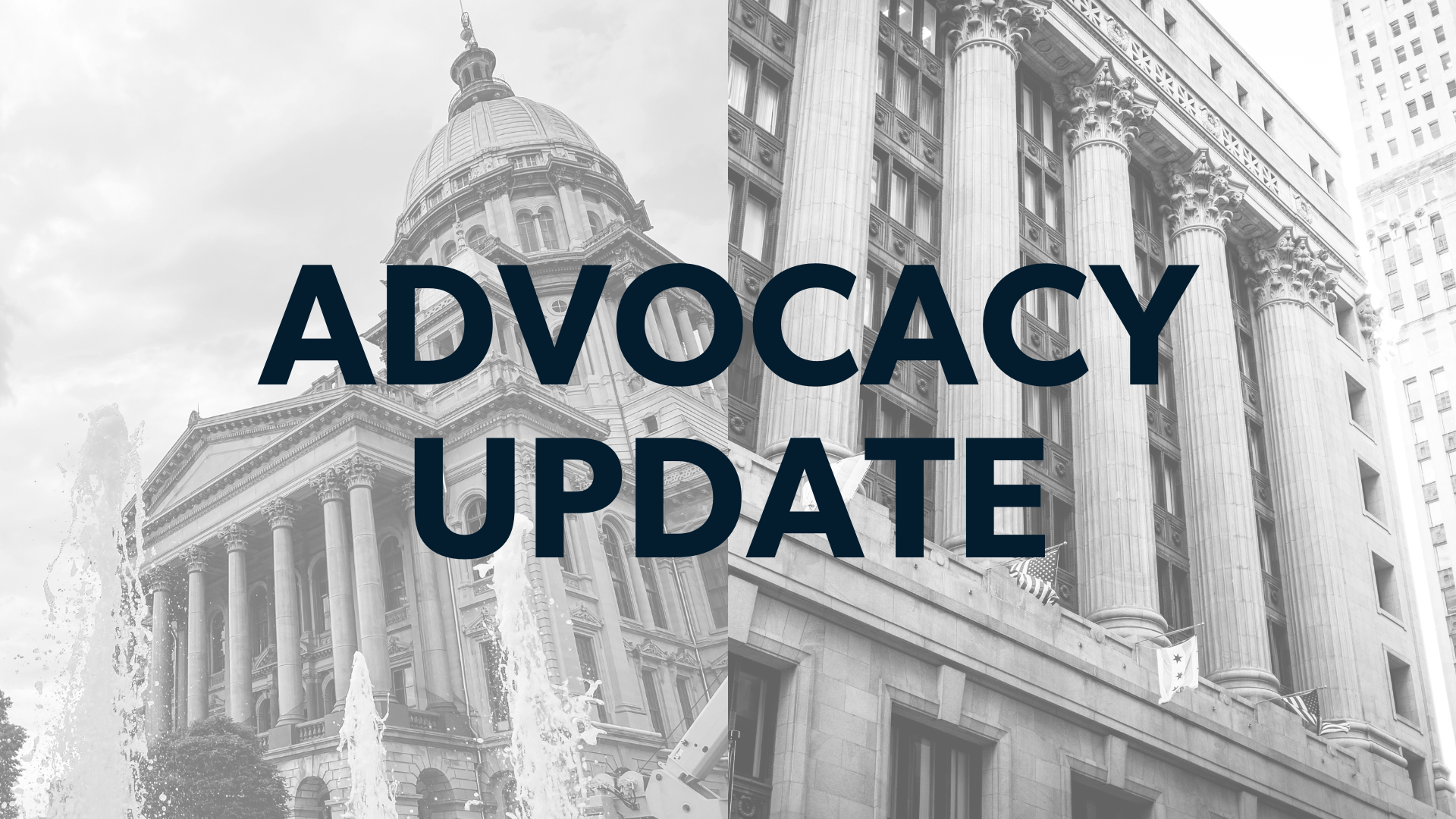The new year brings fresh rules into effect for Chicago residents and businesses, including measures designed to help the city’s most vulnerable residents while simultaneously making life easier for entrepreneurs.
The following is a roundup of major city legislation that took effect when the clock struck midnight on January 1, as well as subsequent city policies set to take place in the upcoming months.
Minority Hiring Rules, Lead Pipe Replacements
The City Council approved Mayor Lori Lightfoot’s Management Ordinance (SO2021-4785) as part of the budget package that cleared the chamber in October. The ordinance makes a slew of changes to city code, including establishing a new office meant to boost diversity in city contracts.
The city is set to add a new contracting equity officer next year, who will be responsible for administering and enforcing compliance with the city’s Minority- and Women-owned Business Enterprise program, which is designed to carve out space for disadvantaged workers among firms that contract with the city or receive city benefits. The new position will report directly to Chief Procurement Officer Aileen Velazquez and is budgeted to earn $130,000 per year.
The procurement office’s new Office of Contracting Equity will include 26 full-time positions with an overall budget of nearly $2.4 million, budget documents show.
Lightfoot’s latest Management Ordinance also expands powers of the Department of Water Management Comm. Andrea Cheng, allowing her to “create programs” to expedite the replacement of the city’s lead service lines. Under the ordinance, Cheng will be empowered to “negotiate and enter into agreements” with building owners.
Cheng told aldermen during her budget hearing in October that the department had, at that point, only replaced 10 of the city’s approximately 10,000 lead lines, falling far short of goals previously set by the department and by Lightfoot.
The management ordinance also makes changes to rules surrounding the city’s licensing of general contractors, including those who must apply for the licenses. The measure adds licensing requirements for anyone looking to undertake a “regulated activity,” including construction or demolition work.
Finally, the ordinance enacts Lightfoot’s $5 million “human infrastructure” grant program, which provides $100,000 to each alderman to disburse in their wards as they wish. The Aldermanic Black Caucus unsuccessfully pushed for the program to more than double its budget to $12.5 million.
For more information, check out the following articles:
- New contracting equity office, lead pipe replacement among grab-bag of budget changes up for committee vote
- Aldermen rail on water officials for lack of diverse contracting, slow replacement of lead lines
- Aldermen rush to finalize budget tweaks on spending oversight, ‘human infrastructure’ as critical vote nears
Civilian Police Oversight Commission
In 2022, Chicago is set to see the implementation of a first-of-its-kind ordinance that sets up civilian oversight of the Chicago Police Department.
Aldermen voted 36-13 in July to pass the “historic” measure (SO2019-4132) that creates three levels of police oversight, drawing directly from Chicago communities.
The measure creates three-member district councils for each of the city’s 22 police districts and a citywide commission empowered to implement police policy. The district councils are tasked with collecting input from the community and serving as a go-between among residents and the police department.
Members of the district councils, who are set to be elected in 2023, are also tasked with choosing members of the citywide commission. But until district council members are elected, the ordinance calls for a seven-member interim commission to be in place.
According to the legislation, the City Council’s Committee on Committees and Rules is tasked with nominating 14 people for the mayor to consider for appointment to the seven-member interim commission.
The ordinance set Dec. 1, 2021, as the date by which the City Council Committee on Committees and Rules was to vote on the list of 14 nominees to send to the mayor for approval, but the committee has yet to begin accepting applications for the interim commission. The interim commission is set to include at least four nominees who live on the north side, at least four nominees who live on the south side and at least four nominees who live on the city’s west side.
Under the ordinance, the citywide civilian commission is set to have authority to approve police department policy, which will take effect 60 days after approval from the commission. But the ordinance gives the mayor power to veto policy passed by the commission within a 60-day period.
Should a mayor decide to issue a veto, they would be required in any written determination rejecting policy to “explain with specificity the reason for rejection,” according to the ordinance.
For more information, check out the following articles:
- City Council approves long-sought civilian oversight of CPD, but supporters say there is still work ‘to be done’
- City Council primed to vote on civilian oversight of CPD after narrow committee passage: ‘We need police reform’
- After delay in establishing police oversight commission, applications set to open before year’s end
Expedited Sign Permits, Other Business Deregulation
Business owners no longer have to apply through the City Council for “public way use” permits, potentially saving them weeks or months on applications for new exterior signs and awnings.
Lightfoot included a provision in her far-reaching “Chi Biz Strong” business recovery package (O2021-2183) last spring to take the permitting power out of the City Council, whose transportation committee typically stamps hundreds of such applications each month. The process has been a thorn in the side of businesses, who have complained that the approval process can take up to four months.
Ald. Brendan Reilly (42) spearheaded a successful push in June to strip the sign permitting reform out of the wider relief package so he could amend it to maintain some local aldermanic power over the approval process. The resulting ordinance (SO2021-2592B), approved in July, gives aldermen 30 days to protest a sign permit application with the city’s Department of Business Affairs and Consumer Protection. Their opposition may be overruled by a majority vote of the City Council.
A separate element of the “Chi Biz Strong” package that lifts the city’s ban on “A-frame” outdoor signs goes into effect on March 1. A set of new rules designed to boost the city’s taxicab industry go into effect on August 1.
For more information, check out the following article:
New Worker Protections
As a companion to the business deregulation package, the City Council in June approved an ordinance (SO2021-2182) designed to tighten labor protections for low-wage workers, especially domestic workers.
The measure included the city’s first-ever crackdown on “wage theft” by holding employers liable for damages equaling the greater of either 2% of any wages they withhold or the “amount specified” by the Illinois Wage Payment and Collection Act.
The ordinance also charted out a schedule of mandated minimum wage hikes for domestic workers, and it expanded the city’s paid sick leave rules.
Employees are now authorized to use paid sick leave when they are injured, when a family member is injured or ill or in quarantine or when they or a family member are a victim of domestic violence or of a “sex offense.” Workers may also use paid secure leave when the employee’s “place of business” is closed due to a health emergency or to care for a family member due to their school or place of care being closed and when an employee or their family member is ordered to stay home or quarantine, according to the ordinance.
The new rules also require employers of nannies, care workers and home cleaners to provide their workers with a written contract in their preferred language. The contract “must include the wage and the work schedule agreed upon by the employer and the domestic worker,” according to a city news release touting the new policy last week.
The City Council passed an update (SO2021-4644) to the new rules in December that doubled the fine for employers who are found to violate the wage theft and paid sick leave provisions.
The ordinance and its update took full effect on January 1.
For more information, check out the following articles:
- Sweeping worker protections ordinance, hotel workers ‘return to work’ measure approved unanimously
- DCASE Commissioner confirmation, tightening of city labor rules set for committee votes
Smoke Detector Replacement Rules
As of January 1, any detachable smoke detector that expires in a Chicago single-family home must be replaced by a more modern “self-contained, non-removable, long-term battery” alarm. The requirement goes into effect for apartment buildings on January 1, 2023, leading to a requirement for all older-model smoke detectors to be phased out by 2033.
The ordinance (SO2019-8529) passed in February after months of delays as lead sponsor Ald. Gilbert Villegas (36) negotiated with the Chicago Fire Department.
For more information, check out the following article:
Mechanical Building Codes Overhaul
The City Council passed a 65-page ordinance (O2021-3239) in December making dozens of tweaks to the city’s rules governing ventilation, piping, heating, refrigeration and appliances in order to streamline existing regulations. The measure was “designed as an interim measure” while the buildings department “finalizes plans to convene a robust stakeholder advisory group to develop comprehensive Building Code updates,” the mayor’s office said at the time.
Among other provisions, the ordinance lowers barriers for property owners to certify a change in occupancy; add new testing requirements for piping, tubing, and fittings; clarify that all occupied rooms must be “rodent-proof;” require the installation of “energy recovery” ventilations systems; and require cooling equipment to be installed with “capacity for peak demand.”
It also simplifies and streamlines the city’s licensing of masons and “stationary engineers” who are qualified to handle boilers and steam engines.
The new rules went into full effect on January 1.
Plumbing Code Updates
Also set to go into effect next year is a 96-page overhaul of the city’s plumbing rules, including by allowing builders to use relatively cheap PVC piping as an alternative to pricier cast iron materials.
The ordinance will also make the following changes:
- Requiring that water supply pipes and fittings supplying cooking or drinking water contain no more than 0.25% lead. Other types of pipes may contain no more than 8% lead.
- Clarifying in the plumbing work permitting process that a drain layer, plumber or plumbing contractor’s license is required for all plumbing work
- Removing separate penalties for plumbing work without a license
- Clarifying and updating requirements for “equipment standards, installation, labeling, backfilling, trenching and footing, trusses, seismic supports, hangar spacing, hot water piping insulation, washrooms and toilet rooms, condensate disposal from fuel-burning appliance and evaporators or other equipment with cooling coils, and annular spaces”
- Updating requirements for fixtures, faucets and fittings; water supply systems; sanitary discharge and sewers; indirect and special wastes; vents; traps, separators, and interceptors; storm drainage; and standards for design and construction of private and non-private swimming pools and other swimming facilities
The proposal also repeals a section of the City Code requiring City Council approval to install public drinking fountains.
The proposal tightens requirements for people to be licensed by the city as “drain layers” — changes set to go into effect on January 1. All other rule changes for public applications become mandatory after March 1, 2022.
For more information, check out the following articles:







